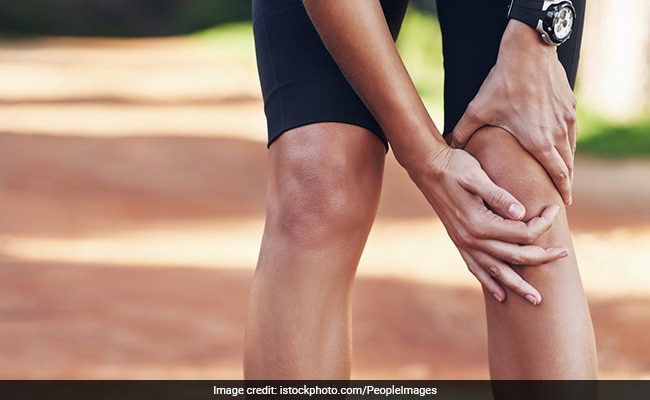
With the onset of the winter season, joint pain becomes a common issue. It is commonly experienced by the elderly. This pain is often linked with arthritis. But there are other possible causes of joint and muscle pain winters that can affect different age groups other than the elderly. It may also affect your ability to perform day to day activities efficiently. There are different home remedies that can help you manage this pain at home depending on the cause of the pain. To understand the exact cause of this not-so-pleasing experience of the winter season we spoke to different experts. Keep reading to know these causes, how to manage this pain effectively at home and when to see a doctor.
Joint pain in winters: What are the causes?
Dr. Sanjay Agarwala explains, "During the winter season when the temperature is low the muscles may go into spasm. The joints also face contraction and tighten in winters. So, a joint which has already been affected even a little bit starts hurting. Another reason is inadequate levels of vitamin D. In winters, usually, your body is not much exposed to the sunlight. This leads to poor formation of vitamin D and as a result, you may experience pain in muscles and joints."
"If you are exposed to extreme temperatures suddenly, the cold may directly affect your joints as it interferes the blood flow in the tissues surrounding the joint," he adds.

Inadequate levels of vitamin D may lead to muscle and joint pain
Photo Credit: iStock
Dr. Ashish Jain tells, "In winters there is a drop in temperature and fall in barometric pressure that affects your joints. These lead to swelling of the cartilage and lining membrane, higher sensitivity of joint pain receptors, tightness of the ligaments and muscles, lack of joint movements due to inactivity and hampered circulation of the nourishing fluid in the joint. All these results in increased chances of aches and pains in your joints along with stiffness and restricted mobility especially after a period of rest like early in the morning."
Also read: First Aid For Sprain
How to manage this pain at home?
"Anything warm can help dilate the blood vessels and ease the pain. Drinking something hot, taking a warm shower or using a heat pad might help. A ligament might also offer some relief. A little bit of exercising will also generate heat in the body and keep joints healthy," Dr. Agarwala adds.
Also read: Living With Arthritis? Follow These Expert Tips To Manage Joint Pain In Winters
Dr. Jain also shares some simple ways to alleviate these pains-
- Keep the ambient temperature warm
- Insulate the limbs with proper clothing or supporter band
- Wear compression garments or wraps for the joints like knee
- Regular physical activity even when indoors might help elevate the pain including flexibility and strength training for the muscles
- Proper nutrition is also essential for the joints and muscles with optimum amount of protein, calcium and vitamin D and C
- Adequate hydration is also essential
- Elevation to the legs helps reduce the joint tightness
- Hot compresses or a bath to relax the muscles and warm the limb
- Local application of liniments and massage oils also works wonder

A healthy diet loaded with protein can help keep your joints healthy
Photo Credit: iStock
When to see a doctor?
If the pain worsens you must seek medical help as there can be several other possible reasons behind this pain. You should not rely on home remedies for too long. Dr. Jains also explains that an individual should choose medical help immediately if-
- There is visible swelling in the joint especially asymmetric
- Progressive increase in pain inspire of preventive measures mentioned earlier
- Restricted range of joint movements
- Significant limp while walking
- Any raised temperature or redness over the joint
- Associated fever
Also read: Arthritis Diet: Foods You Should Avoid To Control Inflammation
There is usually an exacerbation of pains during winters in people with underlying joint issues like arthritis and gout. A prompt and timely medical evaluation can prevent this from aggravating to a point of disability.
(Dr. Sanjay Agarwala is Director -Professional Services, Head - Orthopaedics & Traumatology at P.D Hinduja Hospital & MRC)
(Dr. Ashish Jain is Consultant Orthopaedic & Trauma Surgeon at P.D Hinduja Hospital & MRC)
Disclaimer: This content including advice provides generic information only. It is in no way a substitute for qualified medical opinion. Always consult a specialist or your own doctor for more information. NDTV does not claim responsibility for this information.
Track Latest News Live on NDTV.com and get news updates from India and around the world

